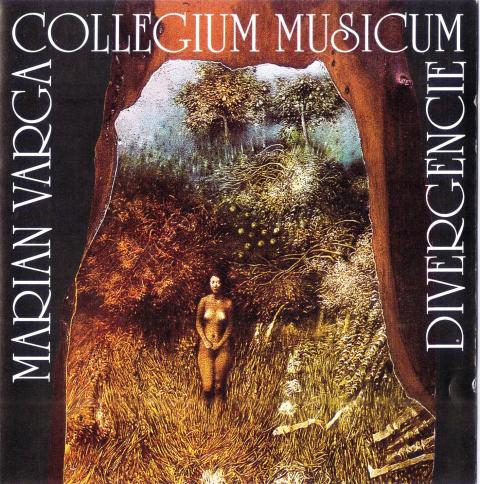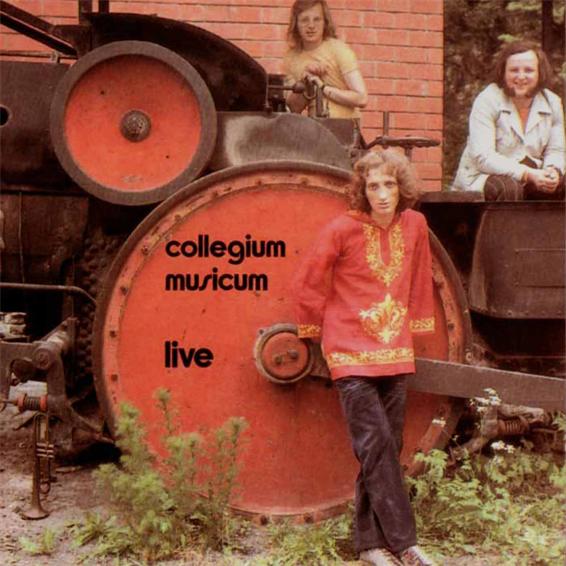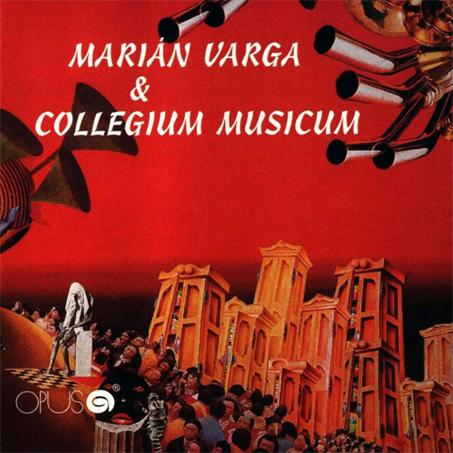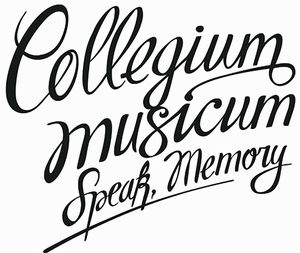/PAlogo_v2.gif) |
|
Post Reply 
|
| Author | |
toroddfuglesteg 
Forum Senior Member 

Retired Joined: March 04 2008 Location: Retirement Home Status: Offline Points: 3658 |
 Topic: Collegium Musicum Topic: Collegium MusicumPosted: March 01 2011 at 15:11 |
|
Collegium Musicum from Slovakia is not one of the biggest and most popular bands here in ProgArchives. But for those in the know, this band is rated very highly and on par with Emerson, Lake & Palmer. Unfortunate, the iron curtain and the cold war meant ELP became a multi million seller while Collegium Musicum had to deal with the problems of a dictatorship. But they still became the biggest and arguable the best prog band behind the iron curtain. Marian Varga was the driving force in Collegium Musicum. He is by all means a living legend. It makes me immense proud to publish this exclusive interview, one of very few interviews Marian Varga has ever done. Enjoy the read.
##############################################################################
What is your
personal background and your musical
background, Marian? I was born in a
technocratic family. My mom was a math teacher
and my father was civil engineer. Only my mom´s brother was
interested in music. He was a doctor but he graduated on a music
conservatory. We had a piano in a family and every time my uncle came
to visit us, he used to play jazz. I was looking for his visits and I
was trying to repeat what he played. In these days I was too small to
reach the clavier (fingerboard). When my mom realized that the music
fascinates me, she took me to her friend teacher, that time reputable
and acknowledged composer Ján Cikker. I used to visit his classes
for seven years and in same time also basic art school. In that time
I started to play hookey (skip school). My piano teacher wrote a
complain letters to my parents and then she started to visit me at
home. She was a great teacher. She didn’t press me in studying
annoying etudes but she wanted me to play Debussy, Chopin, Bartók
and Janáček. I was surprised. When I started to study conservatory
I was well prepared not only in playing piano but also as a composer.
That just wasn’t very good for adolescent. I used to skip school,
smoke and was rude to my communist teachers. They finally threw me
out from school after three years of study. That was in 1965 and
political times became better.
We weren’t that
much ablated from outside and from western countries. We used to
listen to the Radio Luxembourg and we loved newest hits from Beatles,
Hollies, Who, Kinks…Sometimes some of us sneaked out some LPs from
west and we all used to handle it. My uncle
brought me Brubeck´s music and that was a find to me. Although he
was a jazzman, he was Milhaud´s and Schonberg´s student. By this
way I got from Bartók, Stravinskij to rock. That music was
spontaneous, free and though its simplicity it wasn’t stupid in any
way. In every garage there was some band and I also was in a one
called Prúdy. I thought I might try playing this music and then I
see what happens. I didn’t burn bridges; I didn’t want to be a
rock musician forever. When, where and
by whom was Collegium Musicum set
up? The band name seems universal and easy explained, but which bands
were you influenced by? I used to play with
Prúdy about two years and developed a band leader status. We made
album Zvonte zvonky in 1969. If we made
that album one year later, we would be able to publish it because the
censorship wouldn’t let that happen. Our text writer escaped to the
west after the occupation in 1969 and started to work in Radio Free
Europe. For all the 20 years the album was on the list. Critics brand
this album today as the most important album in Slovak rock history.
In that time we break the band and I started working in theatre as a
music dramaturge. My theatre office began to change to studio for a
new band to practice. From Prúdy me, base player Fedor Frešo and
drummer Dušan Hájek moved to start a new band called Collegium
Musicum. I left Prúdy also because I wanted to work with bigger and
more complicated instrumental parts. I founded inspiration and
courage for this in Emerson´s the Nice and ELP. In 1970 we made a
first single and short time after that also first LP with adaptation
of Haydn´s Concerto in D. This was straight
after the failed Prague uprising and the hardline Stalinists
had taken power again in Czechoslovakia. How was it to run Collegium
Musicum during those politically frosty times? Yes, in that moment
the cage felt and we couldn’t get out even for a day and we started
to choke. It was a slow process. Time showed that in catholic
Slovakia we had a soft version of Czech conditions. We were
persecuted for our ideas and believes and also for our visage, long
hair look. But most of time we were quietly tolerated. We were also
lucky that culture minister Miroslav Válek was our big fan.
We played music with
no text and words so we couldn’t be
accused for heckling. That was our advantage. We had a crowd behind
us and there was a sort of hysteria around us. They let us concert in
socialistic states and we were a good export article. In some way we
were something that communists could point in and say – there is a
liberty of speech.
In fact we were something
they didn’t like and didn’t want to support. When I started to
work on my own projects, I started to feel restrictions.  This is an
archive based interview also intended for the fans you get well after
both you and I have passed away so let's go straight to your albums.
Please give us your long or brief views on your albums, starting
with:
Zvoňte zvonky from
1969 This is first album
I composed and recorded. From 12 songs 9 of them are mine, 3 were
composed by the singer Pavol Hammel. I
wanted to give diversity, brightness and also contrast to the album
so I looked for a spot for violin quartet, wood-wind quintet, also
for a Dixieland, waltz, and folklore and mainly rock of course. I
wanted to use original Slovak texts and that was in that time a brave
step.
By this we were
different from other Slovak bands that though Slovak language can’t
be used with rock music. This album wasn’t
made as a planned project. We were recording the songs in Slovak
sound broadcasting studio and at the end of this procedure we had
more songs that we could use on the LP so we had to decide about
final songs. We didn’t use some recorded songs to the LP because
the stoppage and most of these were published on the next album
Zelená pošta from 1972, which Collegium musicum basically recorded.
I endorse both of these albums.
 Collegium Musicum from
1970 After the first
singles as Collegium Musicum we produced an eponymous LP in Prague –
Suprahon label. This LP contains three songs that we used to play at
our first gigs. On the record we used
wood-wind section as well as symphony orchestra. Although I supported
and voted for Slovak language in Prúdy, two of three songs on this
CM LP were English. Many of those words in those songs are hard to
understand. I wanted to point out that human voice was just another
instrument for me and I wanted to point out the instrumental
character of my music.
About Concerto in D
from Haydn – I just didn’t have any other idea, so I took Haydn´s
theme. But how much of it is Haydn and how much me? From the original
concert there are only few times and they are not in the original
order. It was improvisation and gradually I
find out how to play independently from the original, how to use the
material completely by myself.
It was best to me
and I used to not to play from the notes
(sheets of music). It was better to play from my mind. Album have
many child diseases, there are many long solos that makes the songs
not comprehensive. That is a result of gig playing where we could
afford that.
 Konvergencie from 1971 According to my
opinion Konvergencie is best album of CM.
For sides of this double album are for sides of the same coin. These
were the roads that we wanted to make as CM. It is variant album with
child choir, transformation of classic pattern, songs and also
electronic improvisation music. Name of the album liberates from
clear-cut image and predicates that we wanted to interpret our
searching and our feeling from it. It is about approximate to the
ideal that you have in your mind but when you think you can reach it
you find out that it is still so far away.
There are some
conceptions of crossings the genres that
stand side by side to one imaginary spot. We were recording the album
in Experimental electroacoustic studio with a small public. The song
Šeherezáda was recorded live as a concert show. Hammond organ in
song Piesně z kolovrátku was recorded in Bratislava club –
Reduta. In Euforia I tried how far can I go with the communication
with the instrument. I tried limits of Hammond and piano.
 Continuo from 1978
Bad. Las
years of Collegium were in token of comebacks. But when the old
Collegium got together with Frešo and Hájek, there were many
disillusions. We thought that we meet and everything will be good but
each of us at that time was somewhere else in our ideas.
Every band has
better and worse moments. These comebacks are sometimes successful
and sometimes not. On this album you can
see that long solos are far away from that times feeling. This type
of music had its limits and had to end somewhere.  On A Ona from 1979 Very bad album.
I drank a lot and I didn’t believe in myself. Except the song Amata
nobis it has nothing in common with Collegium Musicum.
 Divergencie from 1981 When we recorded
this album it was extremely hot summer and I started to panic.
I composed Christmas suite and I dint know if to buy a Christmas tree
to get in the right mood.
14 parts of suite
P.F (1982, 1983…) with a violin quartet and wood-wind quintet makes
five singed songs with a child choir and two vocalists and
instrumental parts. With Moyzes quartet
(violin quartet from Slovakia) that hosts in this album I also
recorded another album called Marián Varga and Moyzes quartet.
Musica Concertante is five parts Neoclassicist concert with
artificial structure and unorthodox order. Another side is made by
Refrén, with improvisations and ten minutes of duet of piano and
synths with acoustic guitar of Prague host Luboš Andršt, musician
with great adaptability. Interludes show my movement to improvised
music that I play from this album to this day. Forth part of album is
song based.
Divergencie can be
understood as more points of view on the
same object. On all of the four sides is me but from another angle.
It is almost my solo projet but under the heading of Collegium
musicum, that actually didn’t almost exist in that time. How was the
distribution of your albums to the west and to the east of the
iron curtain during those days? To be honest, I have
no idea about that. I know that nowadays there are on-line shops and
likely they are ordering something, because I am getting feed-backs
from distant lands like Japan, the USA or
Brazil. Just out of
curiosity. You have been compared a lot to the great western
musicians like Rick Wakeman and in particular; Keith Emerson. Have
you had any personal contacts with them since
the fall of the iron curtain? No, I don´t have any
personal contact with neither of them and I doubt anybody knows that
some Varga exists.    There is also a lot of
Collegium Musicum live albums of whom both the Collegium Musicum Live
album from 1973 and the Marián Varga & Collegium Musicum album
from 1975 is highly recommended. But you have just (some months ago,
that is) released a new live album (CD/DVD) called Speak, Memory.
Please tell us more about this album and if you can; the two above
mentioned live albums too. Collegium musicum
Live is in the history of the band the most instrumental and a little
bit narcissistically focused on technic, but it doesn´t cause such a
catharsis in the details neither as a whole like Konvergencie. As a
composer I denied my own personality which, I think, I haven´t
managed in my song production. I am
satisfied (but also just partially) only with the song Si nemožná.
After Konvergence it is a step back. It is here where the end of
Collegium in an original formation begins. You can feel the fatigue
of constant playing (between 1972 and 1974 we had 250 concerts a
year) and also, it is all somehow exhibitionistic.
Marián Varga and
Collegium musicum. Even though they say, that this album is
comparable with anything that was produced at this time in the sphere
of proressive rock, I was forced to record it by the publisher. It
wasn´t caused by any overpressure of creativity. I had an enormous
personal crisis related to alcoholism. We were playing all the time.
We played a lot in DDR, sometimes we had even three concerts a day. I
was surrounded by young musicians, who gave me new energy. On the
album there is an adaptation of two of the Six dances in the
bulgarian rythm from Bartók´s Mikrokosmos, Preludium C dur by
Prokofiev and a part of his ballet Romeo and Juliet and also an
adaptation of the second piano preludium by Serocky. The part of the
album is also Hudba k vodometu- a tribute to Ravel´s Jeux d
éau and a long composition called Long Live Man. We recorded the
album all at once (like on a concert), we did only two or three
corrections.
Speak Memory is a record
of a concert we played two years ago. In this time I began to concert
again with my band. I´m not a big fan of the comebacks of old bands.
The audience loves these comebacks, they are even forcing the bands
to it. It´s because people love ilussions. But for me the ilussion
is a little bit false. It seems to me like if they were trying to buy
a ticket back to their youth while experiencing a comeback of the
band from the time of their adolescence. The exception are those who
visit our concerts because of Martin Valiora- our drummer, who is
more than one generation younger than the rest of us. So, Speak
Memory is about remembering old days. How was the
creative processes in Collegium Musicum from coming up with an idea
to commiting it onto an album? In our case it was a
flying start. In the Divadelné štúdio (Theatre studio) where we
had meetings we rehearsed during short time a program for a concert.
The important parts of songs were created during our jam sessions. We
were evolving and enriching our songs later even directly during the
concerts. We had our first concert on 17.3. 1970 in university club
in Bratislava. The concert was shocking. Two days later we took part
in Jazzuniverziáda in the Czech Republic
and we won. In may we sold out Radiopalác in Prague. The Czechs who
were used to another music, were amazed. This concert was a turning
point. The managers were fighting to get us. Soon we had a tour in
Poland. In July we made a change on a post of the guitarist and in
the same month we recorded a single with him. Unfortunately he
appeared to be a weak part of the band so we decided to take back
Rasťo Vacho. The concerts were great and the top is definitely not
what was recorded. In September we played on the festival Jazz
Jamboree. Miles Davis took part in this festival too. In October we
recorded our first LP in Prague. How is the
current availability of all your albums and is there any plans to
release any more albums under the Collegium Musicum
name? I think that all of
our albums are now available. Several reeditions of our albums were
released. We haven´t reestablished Collegium as a creative project.
More likely we are a travelling museum. We are playing only our old
repertoire. Collegium is a closed project
for me. All members of the band, including me, participate in some
other music projects. Do you still do
concerts now and what are your plans
for this year and beyond? I don´t make plans
any more. I never did and now it´s not possible on principle. During
the forthcoming months we are going to play in the Czech Republic
and in Slovakia. We are playing in London in May. To wrap up this
interview, I would like to tell you that you are loved, admired and
highly appreciated in the progressive rock community. I therefore
want to thank you for your music and everything you have given to us
throughout your long life. But I will give you the last word in this
interview. Is there anything you
want to add to this interview? I regret that in the
times when we were young and on the top, we didn´t have the
opportunity to face ourselves with the bands abroad. It´s a pity,
because only in a healthy competition one can grow and mature. It is
a pleasant surprise for me that even after 40 years our music still
address someone behind the borders of our homeland. A big thank you to Marian Varga for this interview. A special thank you to David Gaydecka & Michael Šimon who arranged this interview For those who want to try out this band; start with their very impressive Collegium Musicum Live album.
Edited by toroddfuglesteg - March 07 2011 at 23:48 |
|
 |
|
Lima96 
Forum Senior Member 

Joined: January 20 2010 Status: Offline Points: 445 |
 Posted: March 01 2011 at 17:53 Posted: March 01 2011 at 17:53 |
|
Excellent interview!
      |
|
 |
|
harmonium.ro 
Special Collaborator 
Honorary Collaborator / Retired Admin Joined: August 18 2008 Location: Anna Calvi Status: Offline Points: 22989 |
 Posted: March 01 2011 at 18:16 Posted: March 01 2011 at 18:16 |
|
Wow, impressive hit, Torodd. And an excellent interview. Gotta love that honesty, even if it's a bit surprising at first.
|
|
 |
|
NotAProghead 
Special Collaborator 

Errors & Omissions Team Joined: October 22 2005 Location: Russia Status: Offline Points: 7873 |
 Posted: March 01 2011 at 21:19 Posted: March 01 2011 at 21:19 |
|
Thanks, great interview.
|
|
|
Who are you and who am I to say we know the reason why... (D. Gilmour)
|
|
 |
|
octopus-4 
Special Collaborator 

RIO/Avant/Zeuhl,Neo & Post/Math Teams Joined: October 31 2006 Location: Italy Status: Offline Points: 14212 |
 Posted: March 01 2011 at 23:17 Posted: March 01 2011 at 23:17 |
|
I have discovered them o PA and now they are one of my fav bands. it's a great interview made of intelligent questions.
Very well done.
|
|
|
I stand with Roger Waters, I stand with Joan Baez, I stand with Victor Jara, I stand with Woody Guthrie. Music is revolution
|
|
 |
|
Post Reply 
|
|
| Forum Jump | Forum Permissions  You cannot post new topics in this forum You cannot reply to topics in this forum You cannot delete your posts in this forum You cannot edit your posts in this forum You cannot create polls in this forum You cannot vote in polls in this forum |